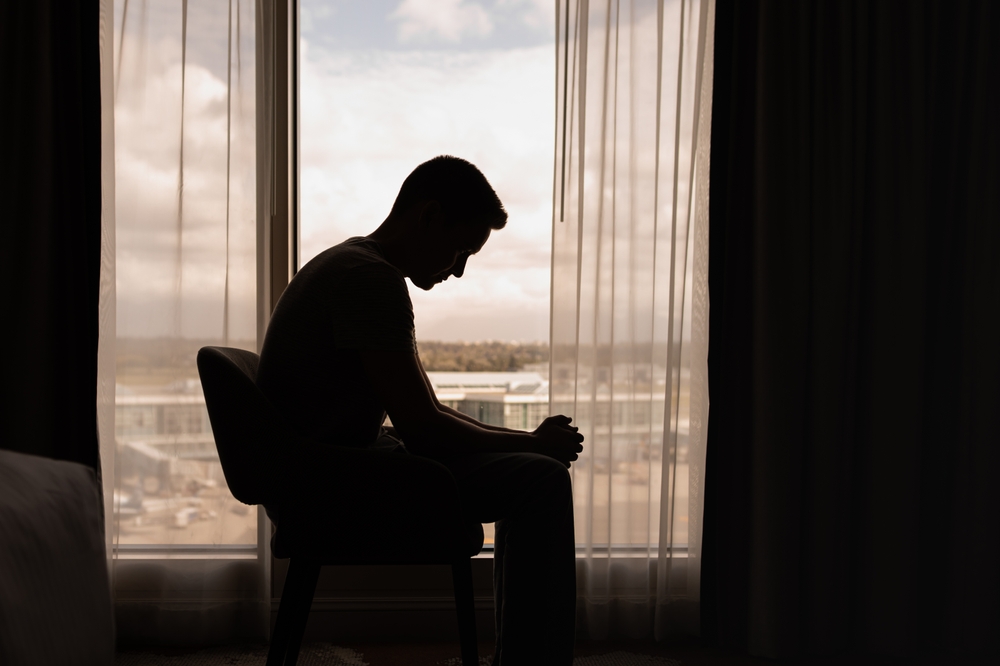Being in addiction recovery is a huge accomplishment. You’ve made it through the hardest early days, dealt with withdrawal symptoms, and started building a life free from drug or alcohol addiction. Along the way, you might notice specific thoughts, feelings, or situations that make cravings surface. These are called relapse triggers.
Relapse triggers are all around us. But you must be aware of and spot them before they get louder. Knowing your triggers gives you power. It helps you build the right coping mechanisms so you protect your mental health and long-term sobriety.
Here’s a list of 10 common relapse triggers and how to avoid them.
Stress
Stress has a way of sneaking up on you. Maybe it’s pressure at work, family tension, money problems, or one of those days when everything seems to go wrong. Before you know it, your body feels tight, your mind starts racing, and those cravings creep in. That’s because your brain remembers that, during times of long-term drug abuse, substances once felt like a quick escape from all that tension.
How to Avoid Stress
You can’t completely erase stress from life. But you can change how you deal with it. Try:
- Breathe it out: Slow, deep breaths calm racing thoughts and give you back a sense of control.
- Move your body: A walk, stretch, or workout relieves tension and supports your mental health.
- Talk it out: Share with a friend, lean on your support group, or connect with your counselor. Speaking your worries out loud often makes them feel lighter.
- Break things down: Focus on one small task when stress piles up. Small wins create momentum and that can help protect you from relapse triggers.
Certain Social Environments
You probably already know this one. Being in the wrong place can throw you off track fast. Think about bars, parties, or even hanging out with old friends who still use. These social gatherings might seem harmless at first, but your brain is quick to connect the dots: “This is where I used to drink or use drugs.” Suddenly, you’re back in a high-risk situation, and cravings feel stronger than ever.
How to Avoid Certain Social Environments
- Plan ahead: If you know a place will trigger you, ask yourself if it’s worth going. Sometimes the best choice is to skip it.
- Bring support: If you do go, take a sober friend or someone who understands your recovery. Having backup makes it easier to say no.
- Have an exit strategy: Allow yourself to leave early if you feel uncomfortable.
- Shift the focus: Build new memories in safe spaces like coffee shops, hikes, or person-to-person hangouts that don’t revolve around substances.
Negative Emotions
Negative emotions can hit hard. Maybe it’s sadness that lingers, anger that boils up out of nowhere, or loneliness that makes you feel like no one gets what you’re going through. When those feelings show up, it’s easy for your mind to whisper, “Remember how substances helped you forget all this?” That’s because your brain connects past drug or alcohol addiction with quick relief, even though it was never a real solution.
How to Avoid Negative Emotions
- Name it: Instead of running from how you feel, say it out loud. “I’m sad, “I’m angry,” “I feel empty.” Naming an emotion takes away some of its power.
- Talk it out: Lean on your support group, a counselor, or a trusted friend. Sharing lightens the load and keeps you from isolating.
- Channel the energy: Write in a journal, make art, go for a walk, or play music. These coping mechanisms turn raw feelings into healthy outlets.
- Self-care first: Eat well, rest, and check in with your mental health. Taking care of your body helps stabilize your mood.
Overconfidence
Overconfidence is not something that many people in addiction recovery talk about enough. When you’ve been sober for a while, you might start thinking, “I’ve got this. I can handle being around it. One drink won’t hurt.” It feels like confidence, but really, it can open the door to a mental relapse. The truth is, recovery is ongoing. Even after years of long-term sobriety, certain internal triggers can sneak up when you least expect them.
How to Avoid Overconfidence
- Stay connected: Keep attending meetings, therapy, or support groups, even when you feel strong. They aren’t just for hard times but part of your foundation.
- Celebrate wisely: Yes, you should celebrate milestones in your recovery. But reward yourself with safe, healthy choices that don’t put you in high-risk situations.
- Check your thinking: If you notice thoughts like “I don’t need help anymore” or “I can handle substances now,” pause. That’s your sign to reach out and ground yourself.
- Stay teachable: Recovery is a journey, not a destination. There’s always more to learn about yourself, your triggers, and your coping mechanisms.
Social Isolation, Boredom, and Loneliness
Quiet moments can feel peaceful for some people. But for those in addiction recovery, too much time alone can turn into a heavy trigger. Boredom, loneliness, or pulling away from others creates space for old thoughts to creep back in. When your mind isn’t engaged, it’s easy to remember how long-term drug abuse once filled the silence or numbed those empty feelings.
Isolation also means missing out on support groups, sober friends, or person-to-person connections that keep your mental health strong. Without that support, the risk of relapsing rises, especially during withdrawal symptoms or other vulnerable moments.
How to Avoid Isolation and Boredom
- Stay socially connected: Make time for sober friends, recovery meetings, or volunteering. These ties keep you from feeling alone.
- Create structure: Plan your day with meaningful activities so there’s less room for cravings.
- Try new hobbies: Learning something new gives your brain healthy stimulation and builds confidence.
- Check in regularly: Whether through therapy, meetings, or calls with loved ones, regular check-ins remind you you’re not alone.
- Celebrate milestones: Acknowledge your progress out loud with people who support you. It strengthens connections and gives you purpose.
Sex and Relationships
Intimacy can be both exciting and overwhelming in addiction recovery. For some, the rush of a new relationship feels like a substitute for the highs once found in drug or alcohol addiction. For others, intimacy brings up old wounds, insecurities, or negative emotions that can feel hard to manage without substances. Both situations create high-risk situations if you’re not careful.
Sex and relationships can stir powerful feelings like joy, fear, jealousy, or rejection, and these may trigger cravings. If boundaries aren’t clear, or if a partner doesn’t fully understand your commitment to long term sobriety, you might find yourself more vulnerable to the risk of relapsing.
How to Avoid Relapse in Intimacy
- Take your time: Don’t rush into relationships just to fill a void. Give yourself space to grow strong in your recovery first.
- Set clear boundaries: Be upfront with partners about your needs, especially around avoiding substance abuse or social gatherings that could put you at risk.
- Separate validation from sobriety: Your worth and your mental health don’t depend on whether someone accepts you. Staying sober is about you, not them.
- Practice healthy coping skills: When strong emotions come up, lean on support groups, sober friends, or a therapist instead of turning inward.
- Communicate openly: Honest, respectful conversations about triggers, expectations, and boundaries create safer, healthier connections.
Complacency
In the early days of addiction recovery, every sober day feels like a victory. You’re careful, alert, and motivated. But as time passes, it’s easy to relax your guard. Maybe you skip a meeting, stop checking in with support groups, or start thinking, “I’ve got this. I don’t need to worry anymore.” That’s complacency, and it can quietly increase the risk of relapsing.
The truth is, recovery is a lifelong process. Even when you’ve achieved long term sobriety, old habits can resurface if you stop practicing the coping mechanisms that keep you grounded. Complacency isn’t about weakness, it’s a normal part of your recovery journey. But if ignored, it can lead to a mental relapse long before a physical one happens.
How to Avoid Complacency
- Stick to routines: Keep attending meetings, journaling, or doing whatever keeps you steady, even when life feels good.
- Celebrate milestones mindfully: Acknowledge your progress, but remind yourself recovery requires ongoing care.
- Stay humble: Remember how far you’ve come and how much effort it took to get here. That awareness helps you avoid slipping back into old thinking.
- Surround yourself with accountability: Whether it’s sober friends, a sponsor, or a therapist, having people who notice when you start to drift makes a big difference.
- Keep learning: Explore new coping skills, self-care strategies, or hobbies that support your mental health and keep recovery fresh.
Relationships and Conflict
Relationships can be some of the biggest sources of love and support, but can also stir up stress, frustration, and old wounds. Arguments with family, tension with a partner, or feeling misunderstood by friends can leave you vulnerable.
For many people with a history of drug or alcohol addiction, conflict can feel like an automatic pull back toward substances. It’s not just the fight itself. It’s the negative emotions that follow, like anger, loneliness, or resentment. Those feelings can quietly fuel the risk of relapsing if they aren’t addressed.
How to Avoid Relationship Triggers
- Pause before reacting: In heated moments, step back. A deep breath, a walk, or even a quick journal entry gives you space to respond rather than react.
- Strengthen communication: Practice saying how you feel calmly and directly. Being honest without blame helps reduce conflict.
- Surround yourself with sober friends: Spending time with people who respect your long-term sobriety makes it easier to avoid high-risk situations.
- Lean on support groups: Talking things through person-to-person helps you release bottled-up emotions.
- Focus on self-worth: Remind yourself that your value isn’t defined by a single argument. You’ve worked hard to maintain sobriety, and no fight is worth losing that progress.
Health Issues or Life Transitions
Life has a way of throwing curveballs, such as an unexpected diagnosis, moving to a new city, losing a job, or even becoming a parent. These health issues and major life transitions can shake your sense of stability and bring back old cravings. When everything feels uncertain, your mind might drift toward substances as a way to cope, especially if that’s how you used to handle stress before addiction recovery.
How to Avoid Relapse During Transitions
- Build a routine: When life feels unpredictable, grounding yourself with daily structure, meals, sleep, and exercise can help control cravings.
- Stay connected: Don’t isolate. Talk to supportive friends, join recovery groups, or lean on your sponsor when change feels overwhelming.
- Focus on small wins: Instead of trying to solve everything at once, celebrate progress step by step. This keeps you motivated and protects your sobriety.
- Prioritize self-care: Health challenges and transitions can drain you physically and emotionally. Make rest, healthy eating, and movement part of your toolkit.
- Ask for help early: Whether it’s medical care for a health issue or counseling to process a big life change, getting professional support lowers the risk of relapse triggers taking over.
Physical Pain or Withdrawal Symptoms
One of the toughest parts of addiction recovery is dealing with physical pain or the lingering effects of withdrawal symptoms. Maybe it’s back pain that flares up, headaches that won’t quit, or body aches that remind you of the past. When your body hurts, your brain might bring back an old coping mechanism.
How to Avoid Relapse from Pain or Withdrawal
- Talk to your doctor: Don’t push through pain alone. Work with a medical professional who understands your recovery journey and can recommend safe treatments.
- Try alternative coping mechanisms: Exercise, stretching, meditation, and even gentle movement like yoga can help reduce tension and release natural feel-good chemicals.
- Manage withdrawal wisely: If you’re still dealing with withdrawal symptoms, know that they usually ease with time. Stay hydrated, rest, and lean on your support system.
- Don’t self-medicate: Using drugs or alcohol to dull pain is a quick path to relapse. Instead, focus on healthy coping strategies and talk to your care team about options that won’t put your sobriety at risk.
- Stay honest: If cravings get stronger when pain flares up, tell someone you trust. Keeping it inside only makes it harder.
Setbacks don’t define you, they’re just part of the journey. Every day you choose recovery, you prove your strength. If you’re struggling with relapse triggers or the pull of drug or alcohol addiction, know that help is always within reach. More Than Rehab offers the support, treatment, and guidance you need to heal and maintain sobriety.








